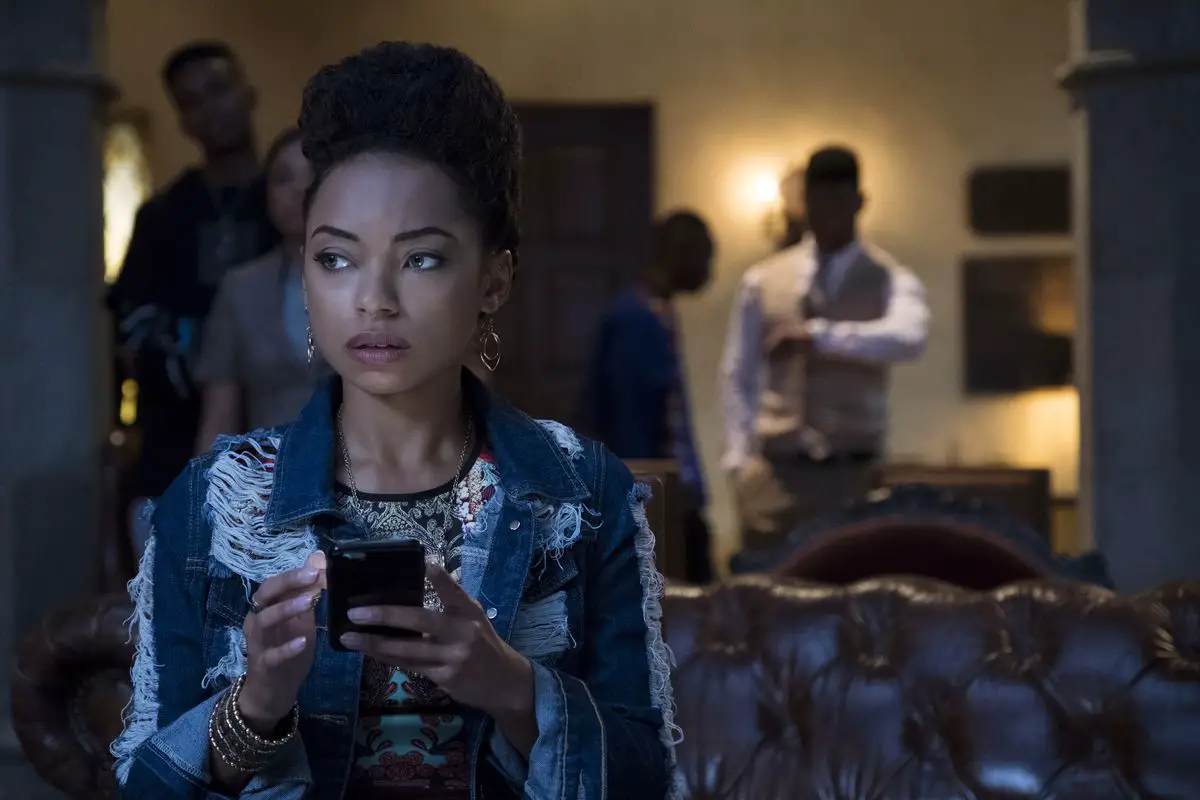“Dear White People,” a Netflix original series created by Justin Simien, has recently received critical acclaim. Author Ta-Nehisi Coates called the show “a tremendous artistic achievement” in a review for the Atlantic. “Dear White People” is a three-season dramedy consisting of half-hour-long episodes that chronicle the lives of Black students at the fictional, elite, predominantly white college, Winchester University. Each episode focuses on one of several main characters, all of whom are Black, as they navigate the challenges and joys of being Black university students. White students attending predominantly white institutions (PWI) like Winchester University have a lot to learn from this show.
Recent events surrounding police brutality have laid bare the racist systems that the United States of America was built on and abides by today, and many white people have finally begun to wake up to the role their complacency plays in this system. Increasingly, white people, including myself, are becoming aware of the need to act as allies to BIPOC (Black, Indigenous and People of Color) communities. This allyship includes amplifying BIPOC voices, educating oneself on racial injustices, unlearning biases and supporting BIPOC organizations and businesses. To be an ally, white people must also be mindful of the entertainment we consume and make an effort to support BIPOC-created and centered art.
Unfortunately, the entertainment promoted by white-dominated Hollywood and network television usually perpetuates racial biases and falls short in BIPOC representation. Thus, watching television can reinforce the existing biases of white viewers. Network television and streaming services rarely air any form of entertainment that centers Black voices without tokenizing them. Token Black characters in television shows created by white people are thus understood by white viewers to be representative of the whole of the “Black experience,” leading to a homogenized and flawed understanding of Black lives. Other shows might include Black characters but brush over questions of racial injustice, perpetuating an equally dangerous notion — that society has progressed past race into a color-blind utopia. “Dear White People” is a necessary antidote to these problems.
Simien deftly manages to create a series that is simultaneously an entertaining sitcom and a complex, fleshed-out racial commentary. The dialogue is undeniably funny. Characters engage in sarcastic banter and take playful digs at each other. The show references and parodies pop cultural paradigms. The comedic banter sounds familiar to the college students that comprise the show’s target audience. The plotline includes love triangles and friendship struggles, furthering the show’s entertainment value for audiences who enjoy sitcoms.
However, “Dear White People” is also heavy. The plot deals with racial issues that range from “harmless” microaggressions to disturbing instances of racially motivated police brutality and violence. White viewers are thus forced to ponder issues that are either glossed over or entirely ignored by white-authored sitcoms.
The show is poignant but not because of its informational value (at least not just because of its informational value). In fact, most of the issues the show deals with are things that liberal white college students are familiar with, if not on a visceral level. However, when shown through the eyes of Black protagonists, the same issues strike a deeply emotional chord with white audiences. The nature of film places audiences in alliance with the main characters; in other words, watching racial tensions unfold through the eyes of Black characters builds vitally important racial empathy in white viewers.
“Dear White People” is careful not to make any blanket statements about some sort of universal Black student experience. The writers of the show ensure this by centering the narrative of each episode around the experiences of a different Black main character.
Sam is the biracial host of a campus radio show from which the whole series takes its name, where she bravely calls white students out on their racism. Troy is the beloved-by-all, conflict-avoiding, quick-to-appease student body president who is likened to Barack Obama and tokenized by white students. Reggie is a radical activist who hopes to ignite a revolution in the face of white-orchestrated oppression. Lionel is a quiet journalist for the school paper who wrestles with his allegiance to Black campus organizations and the pressure from his editor to report on specific stories, as well as with his own identity as a gay man. Coco is an ambitious, power-driven student who hopes to assimilate to her white surroundings to rise to the top.
By creating a wide array of Black main characters, the writers prevent white audiences from convincing themselves of a homogenized universal Black experience.
That said, the show also does a fantastic job of showing the way in which being Black, especially at a PWI, seeps into nearly every aspect of life, no matter who you are. The dialogue and plotline are soaked in racial commentary, even when the characters are going about their everyday lives. White people tend to think of race only when an explicitly racist occurrence transpires. The show effectively explains to white viewers, through Black narratives, that race and racism are impossible not to think about as a Black person at a PWI and in the world at large. White viewers are exposed to the emotional exhaustion that accompanies the constant awareness of one’s own racial status. Meanwhile, white people comfortably ignore race, which is a privilege and a problem.
White students often unfairly burden their Black peers by expecting Black students to educate white students about Black history and struggles. White media consumers likewise expect the one or two Black characters in majority-white media to represent the whole Black experience. “Dear White People” is addressed to these white students and consumers. The title hopes to grab the attention of white users scrolling through Netflix. The startlingly direct address works intentionally to clear the smoke lurking around statements like “I just didn’t know” that follow racist comments.
Dear white people: Here are Black writers addressing us and giving us a show that puts into motion an easy way to understand a variety of Black experiences and perspectives. Watch it, and grow in understanding.

















